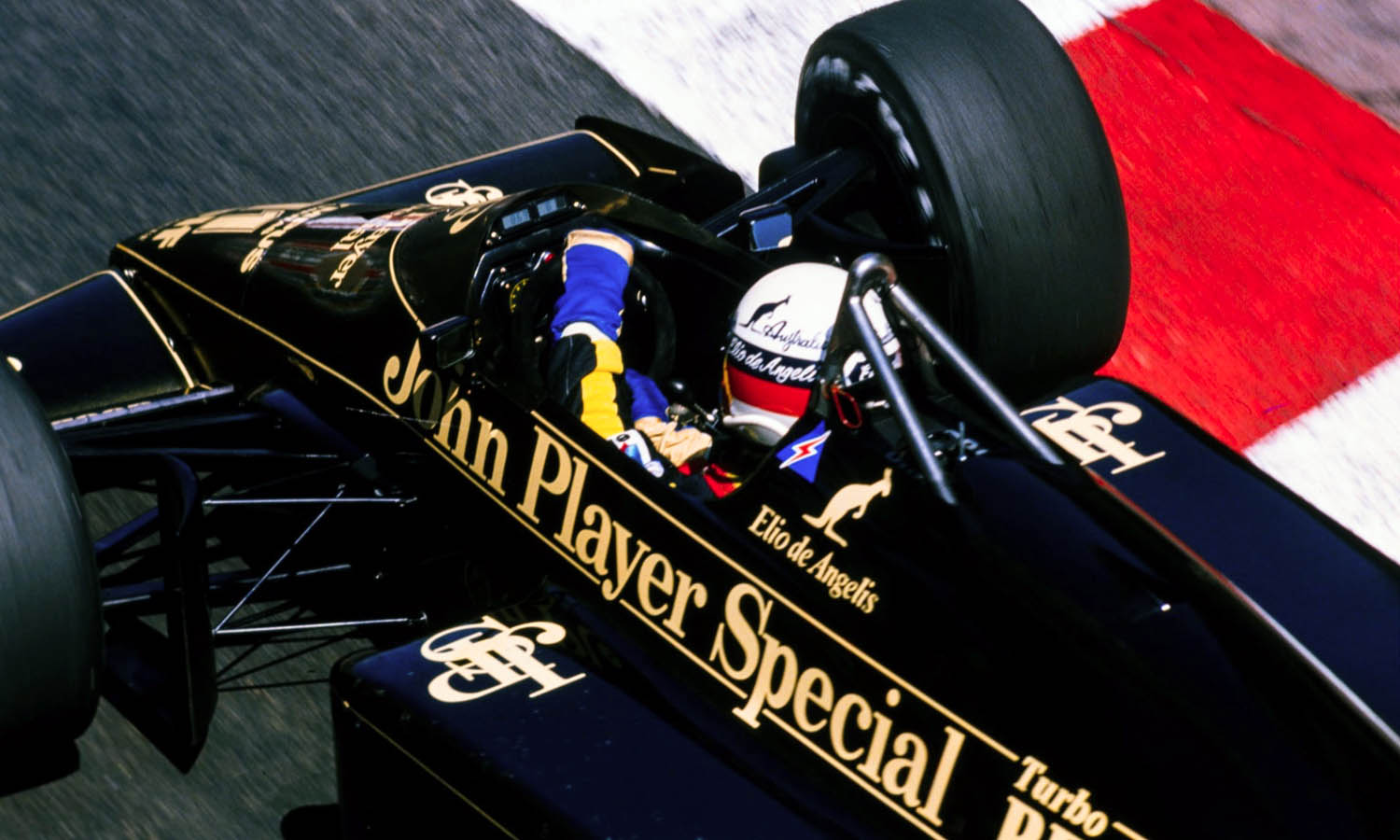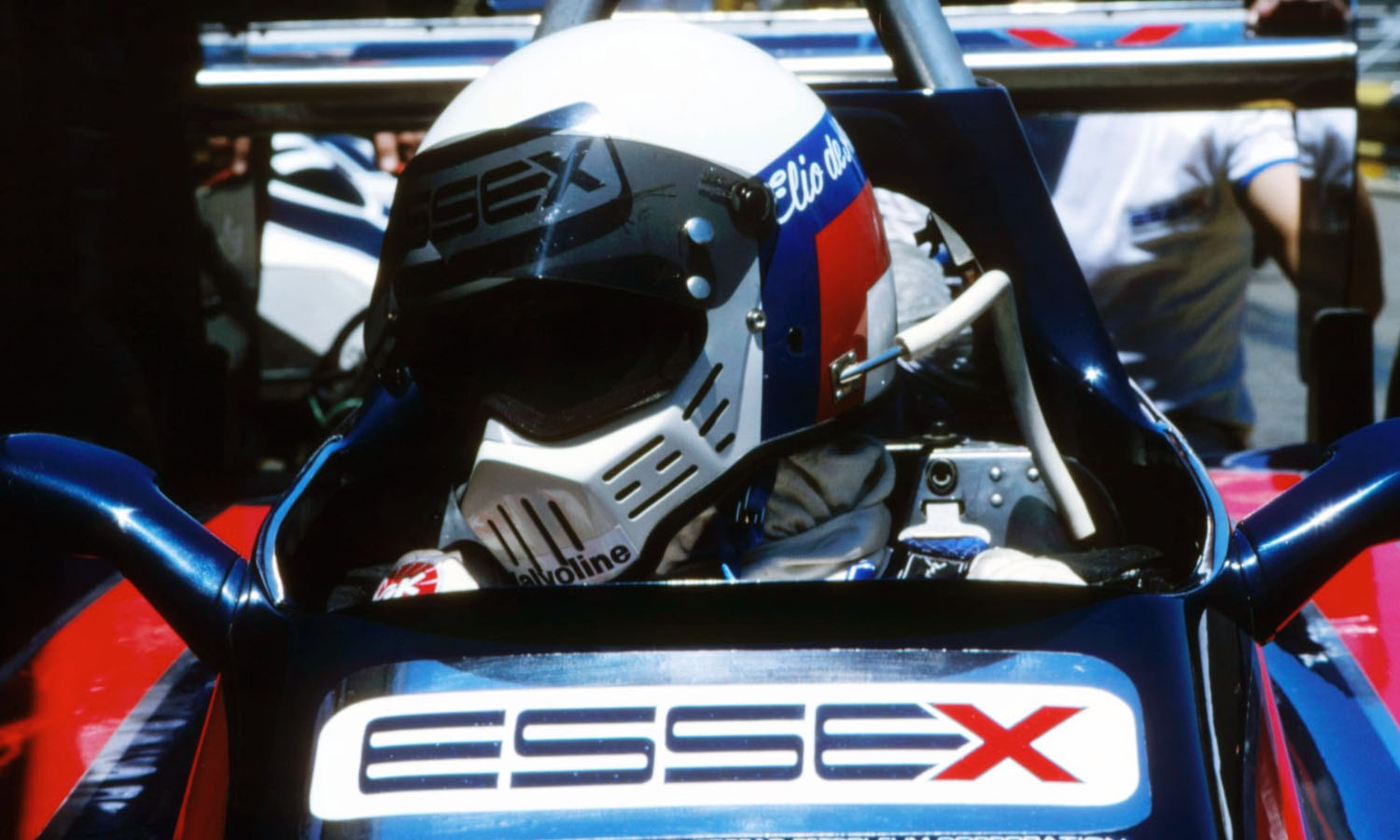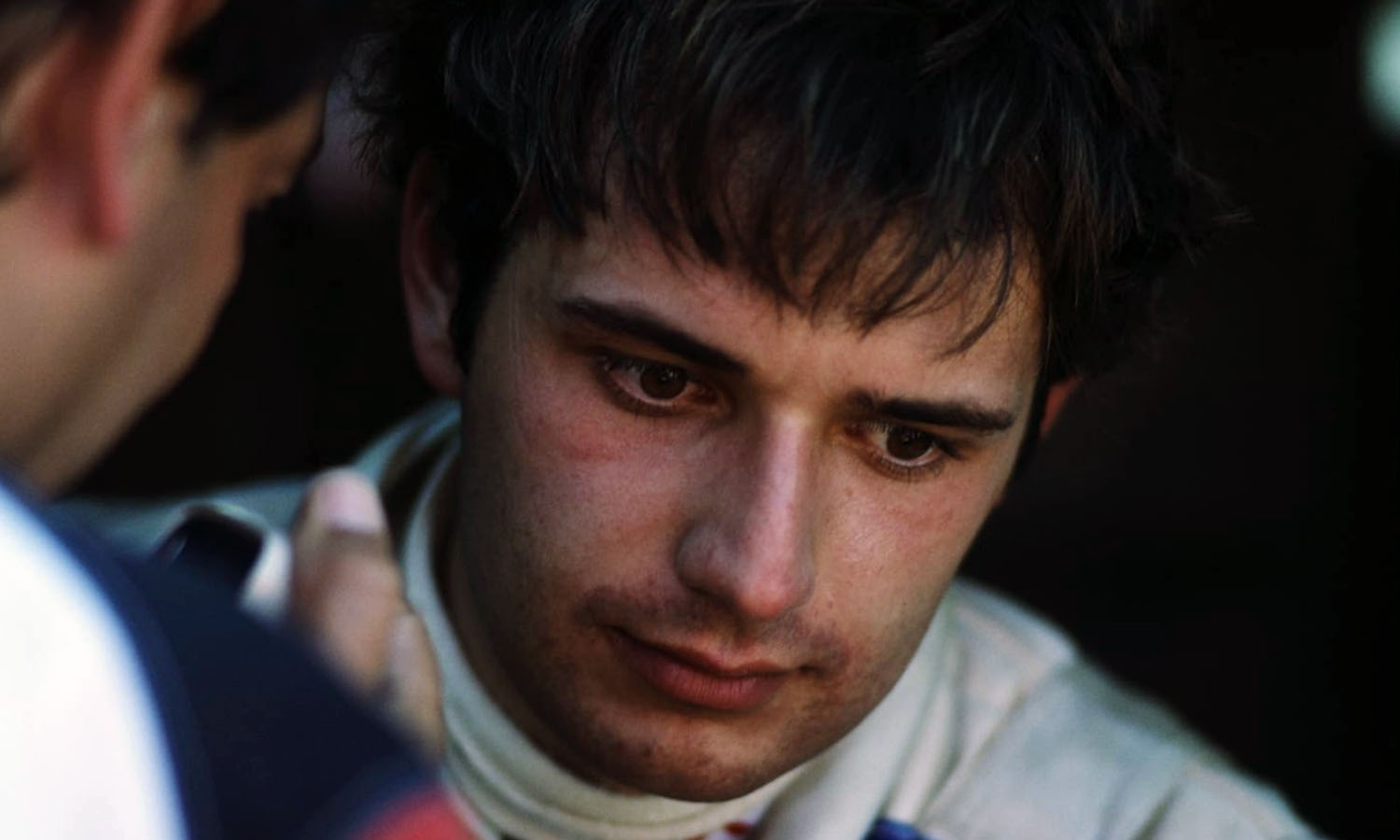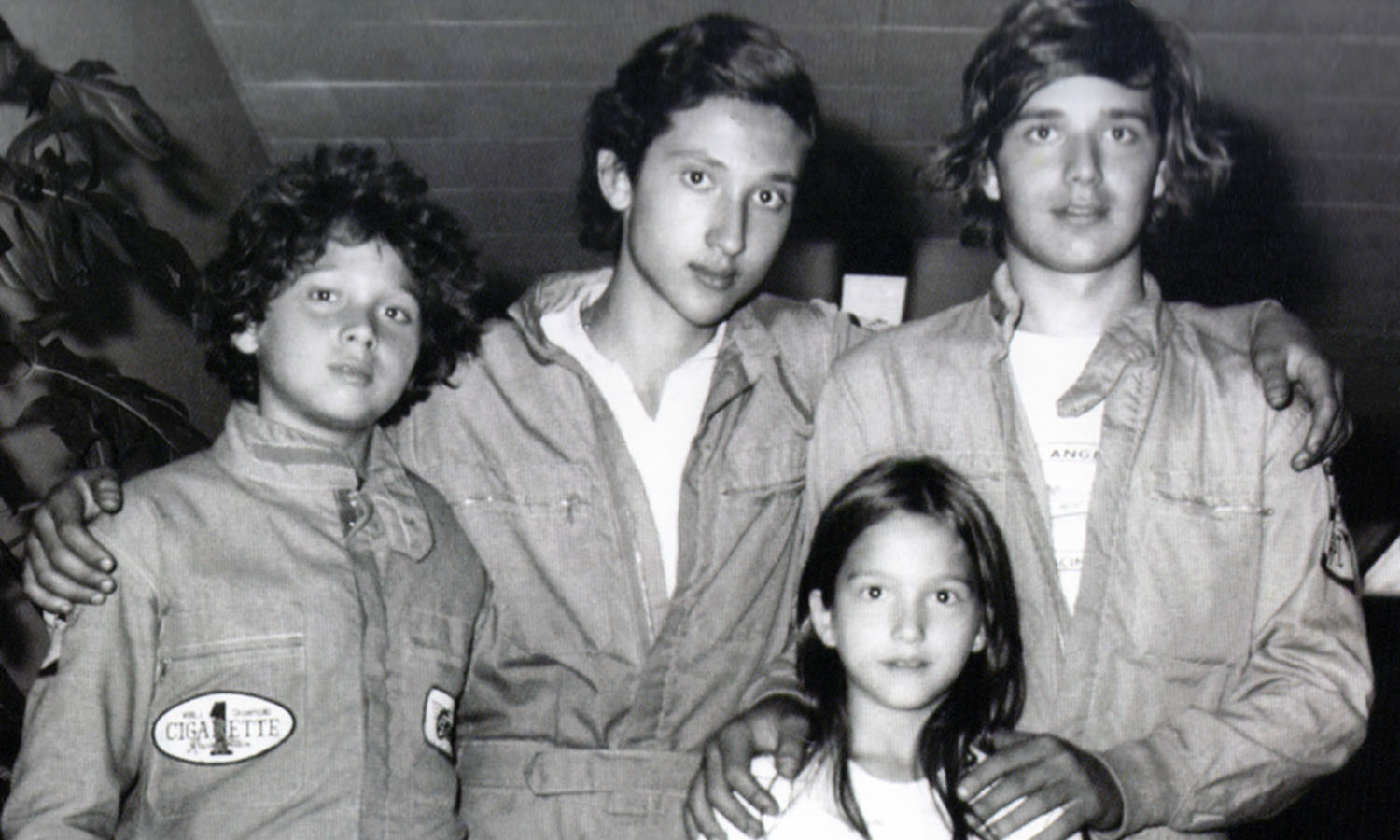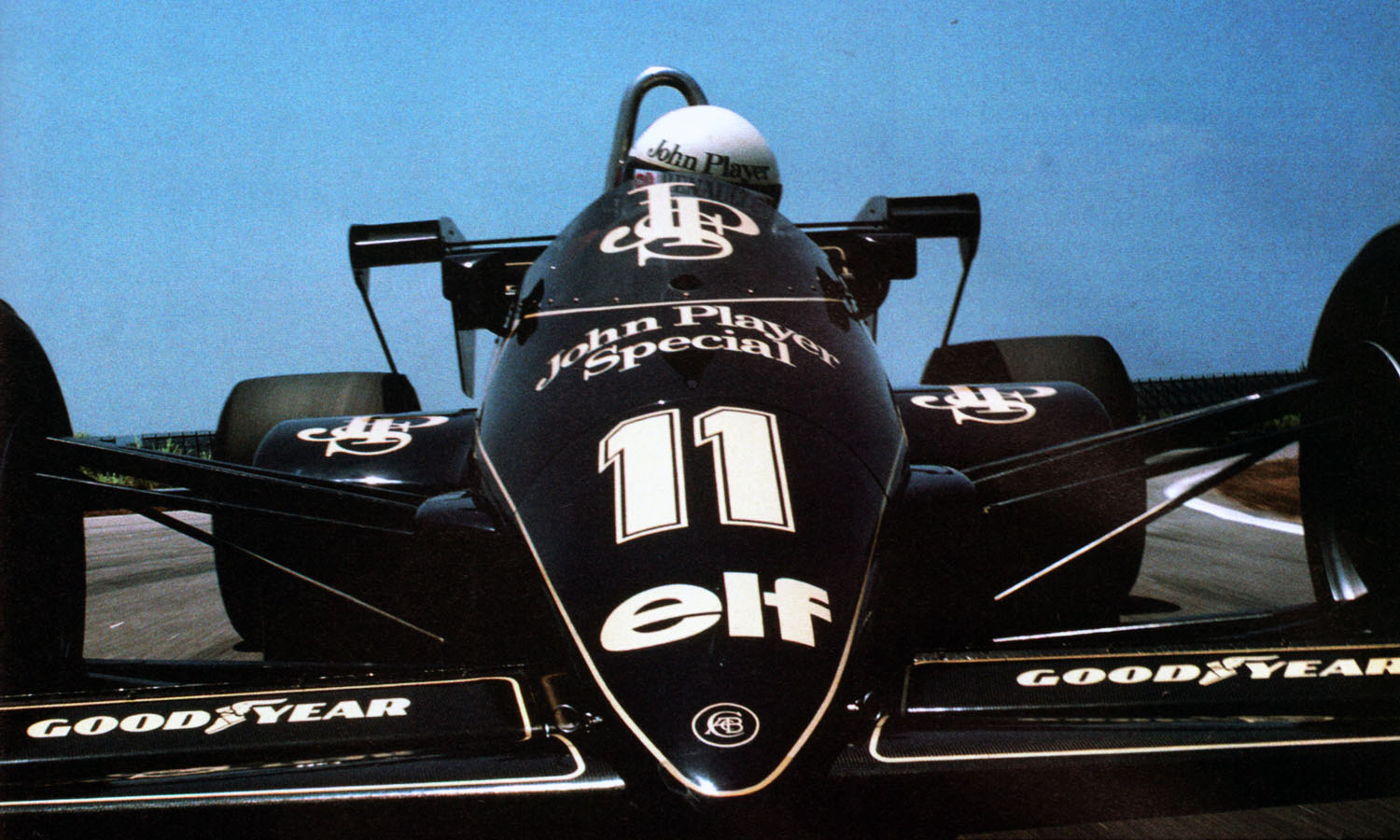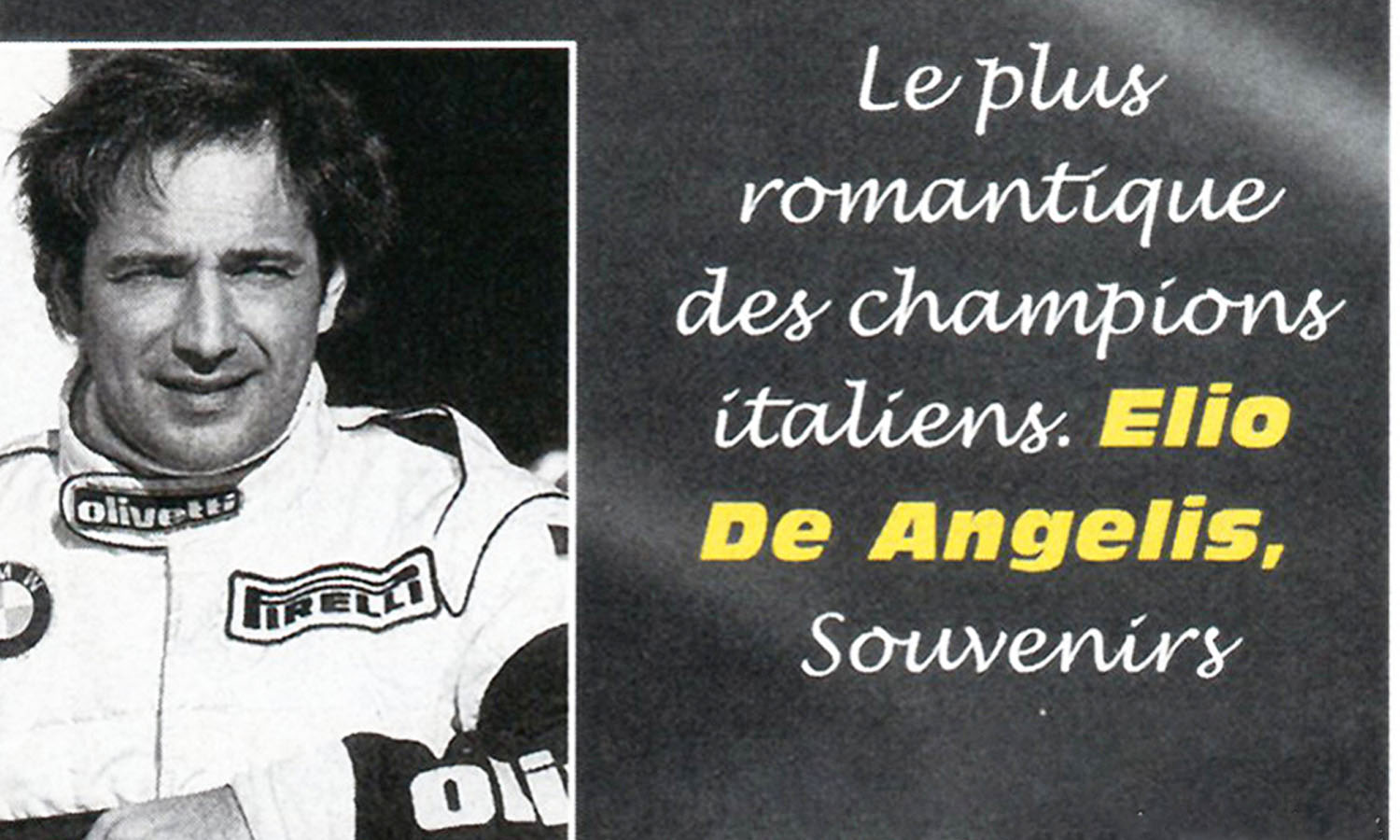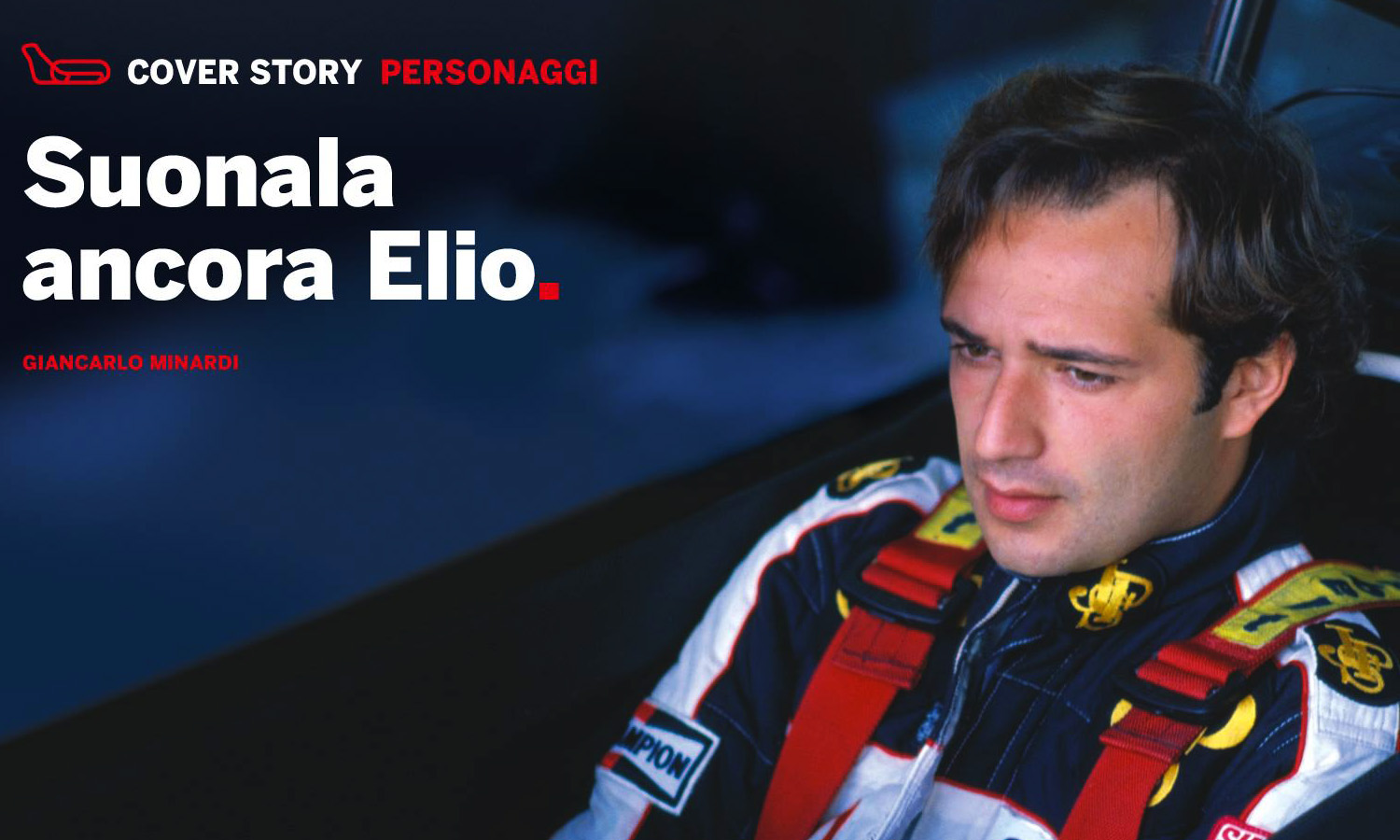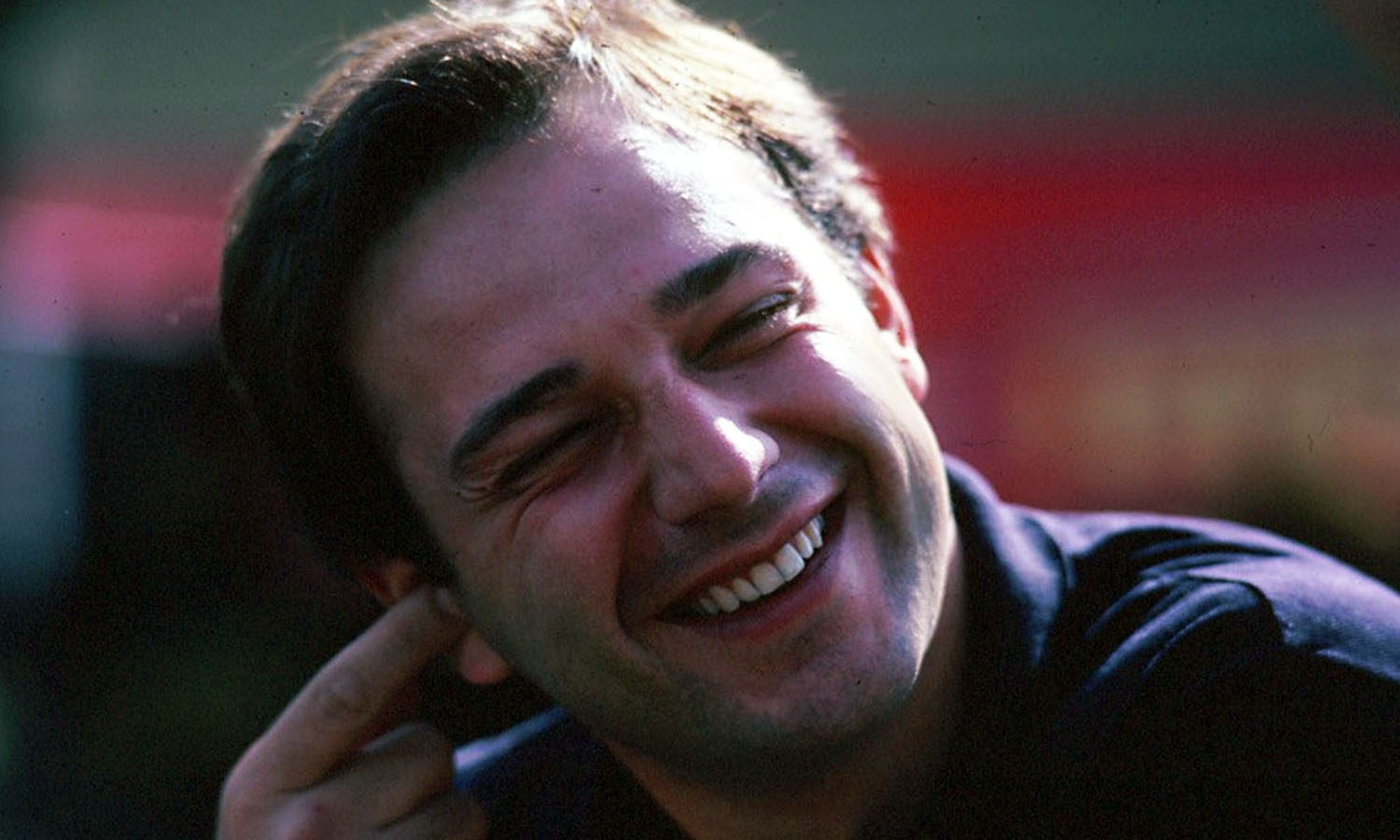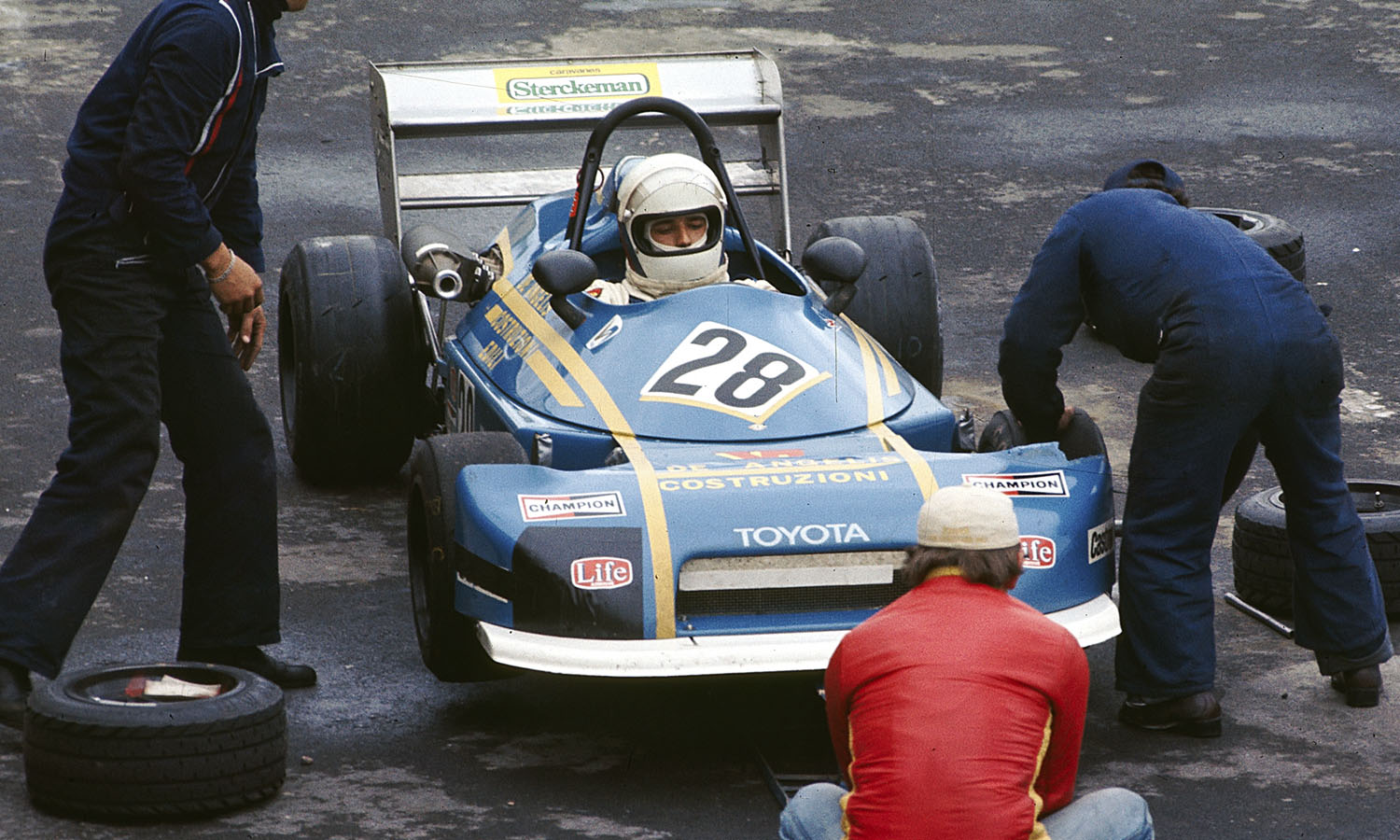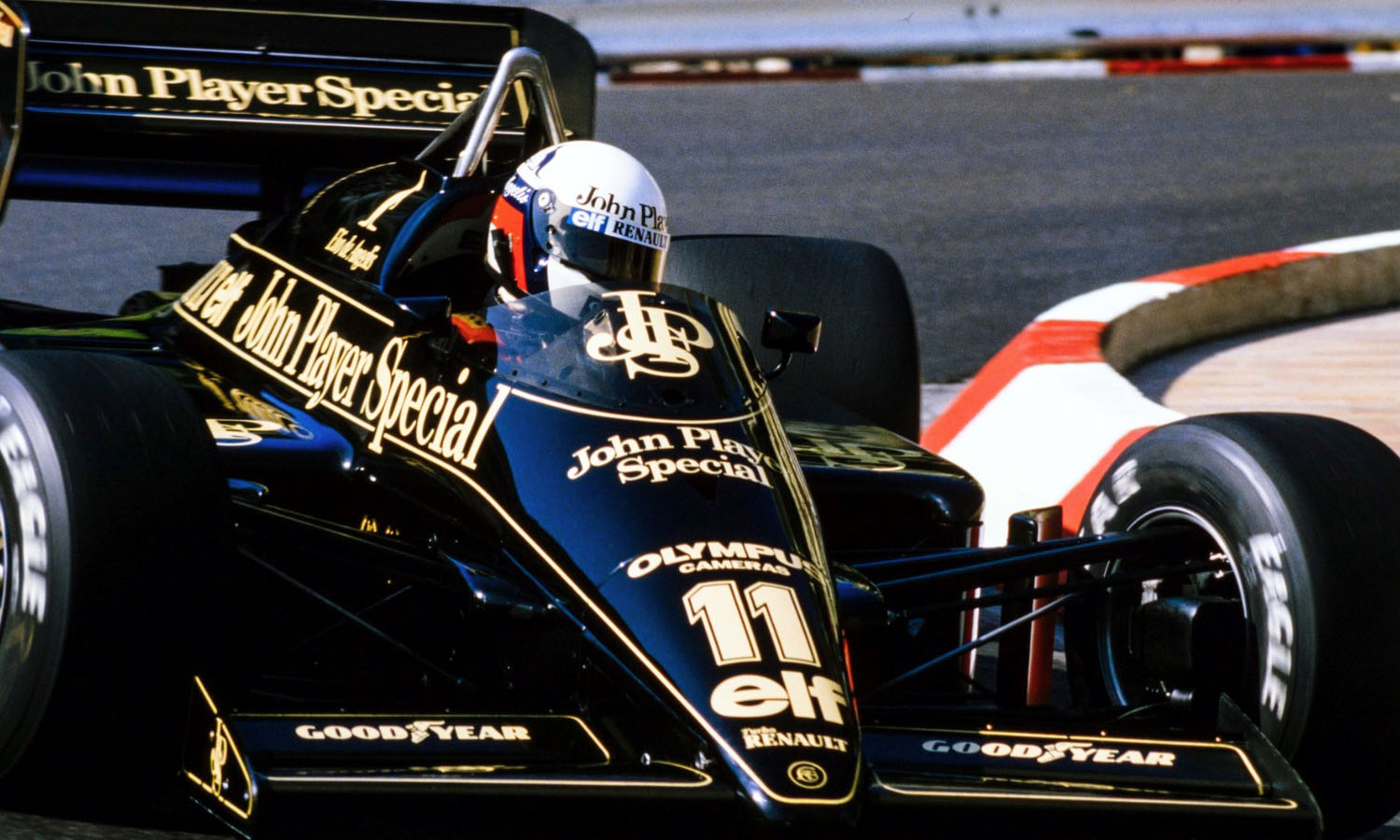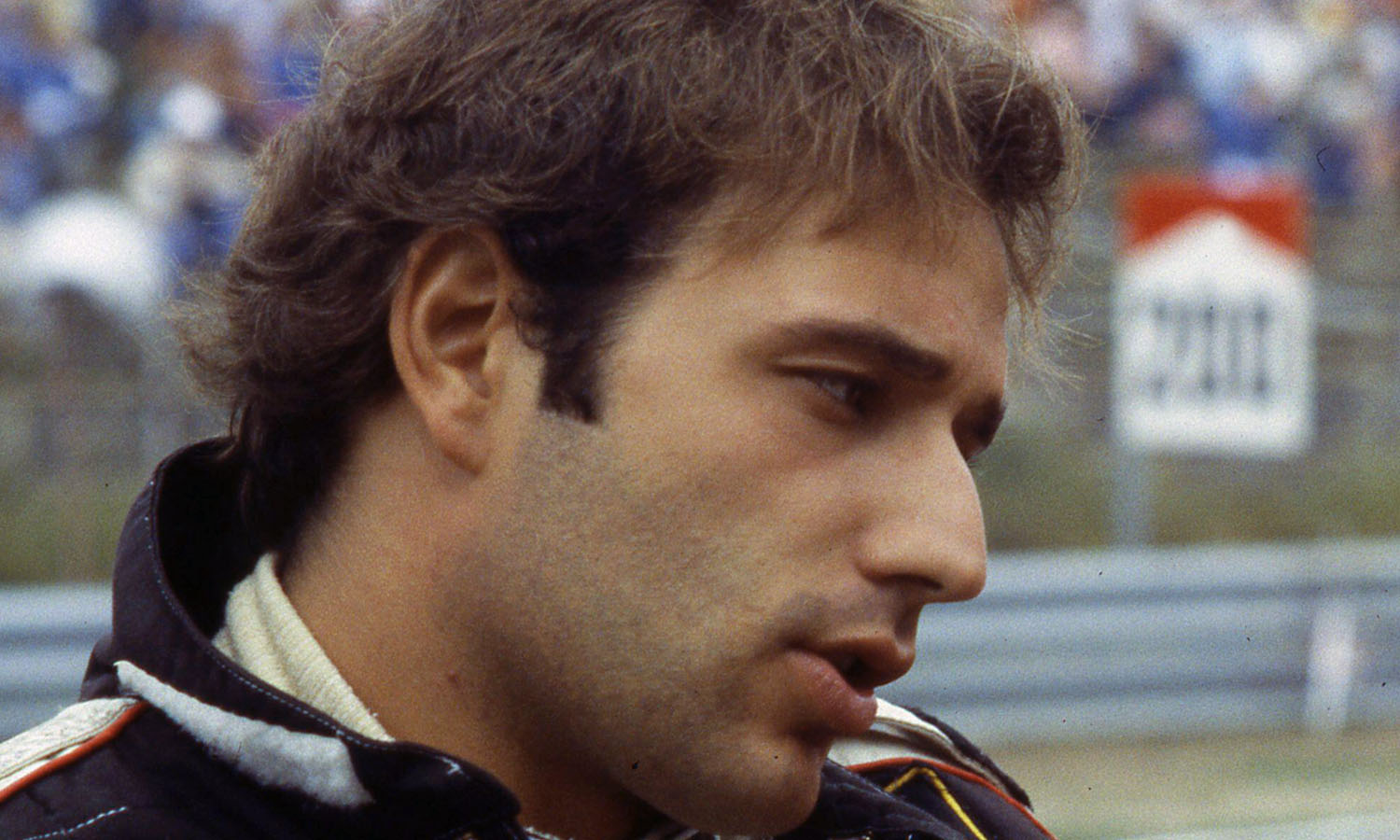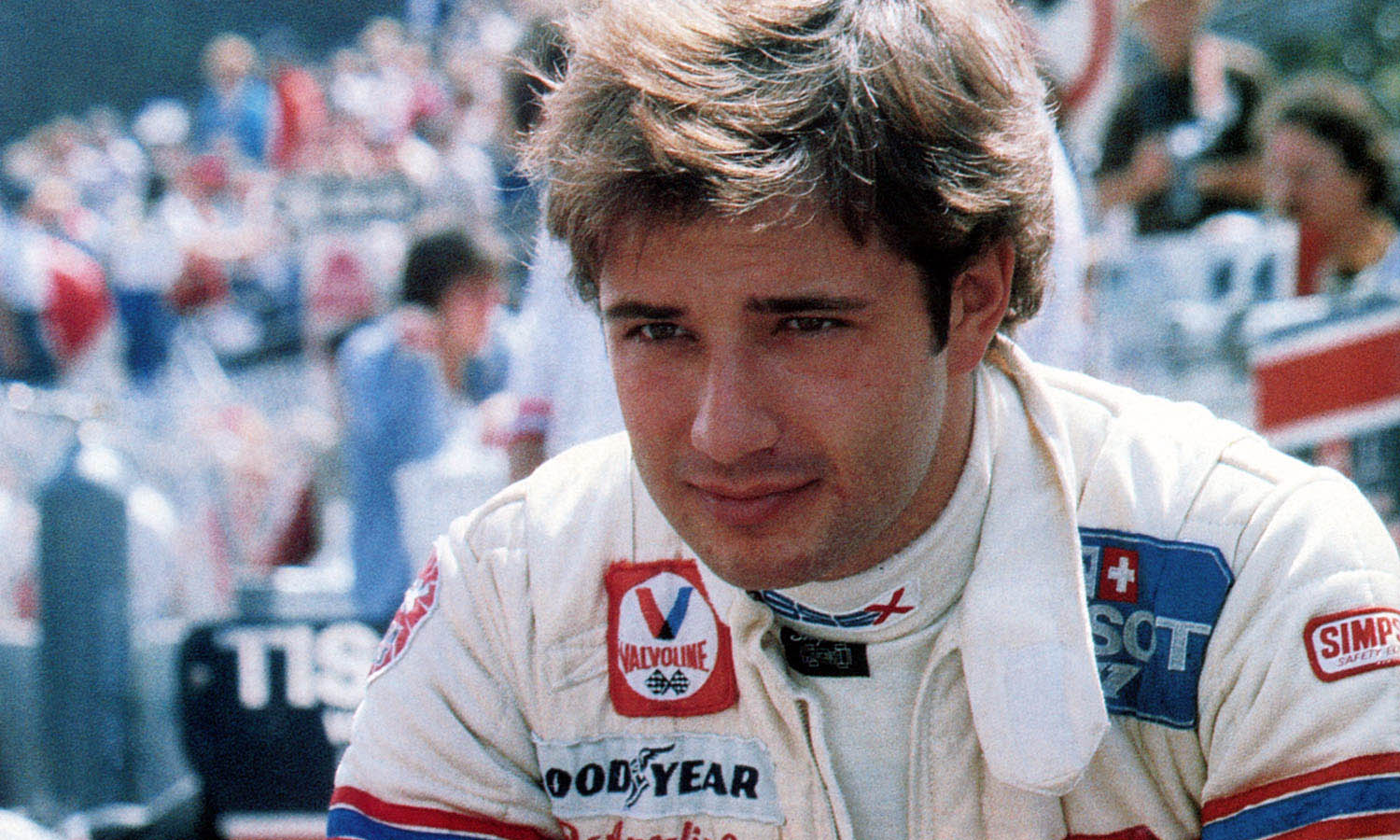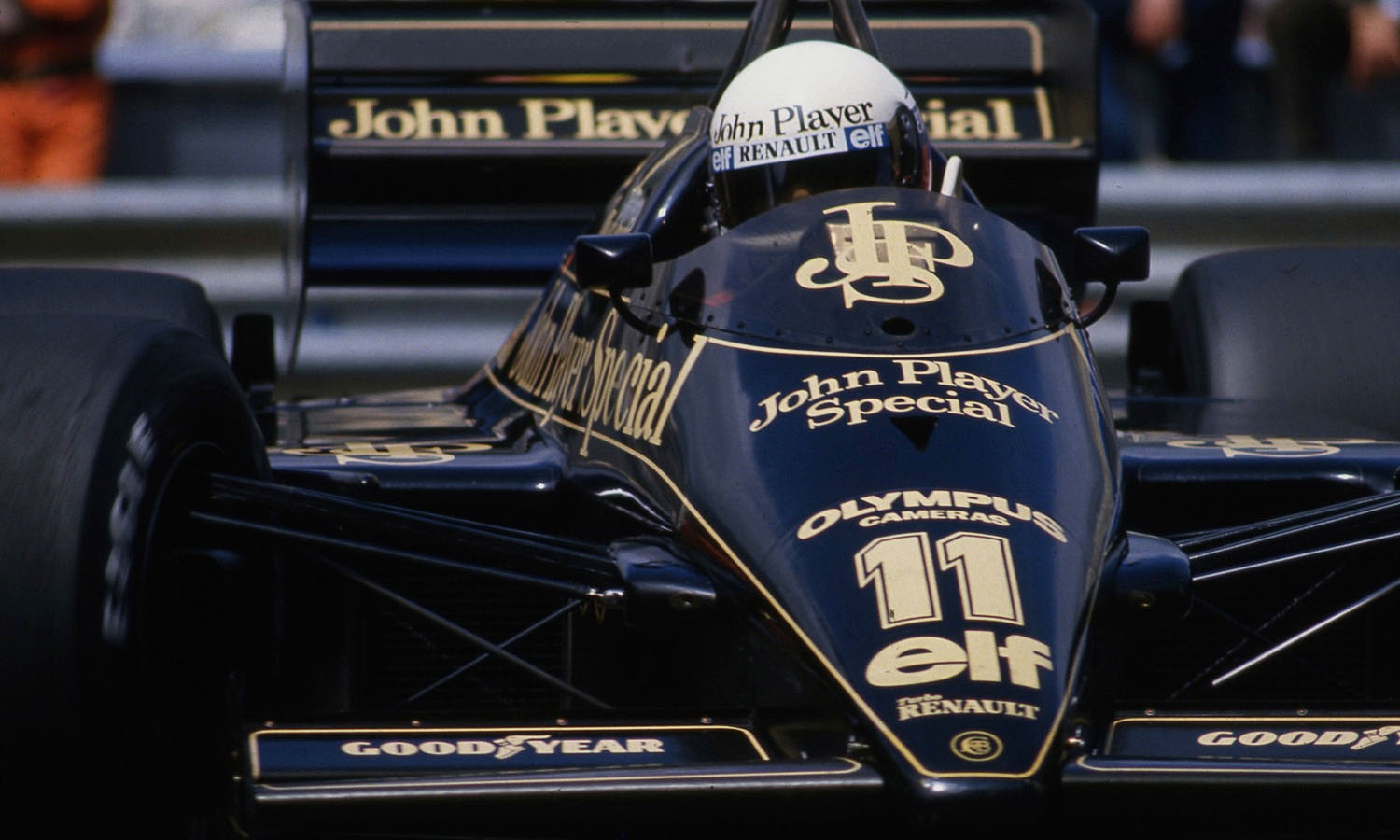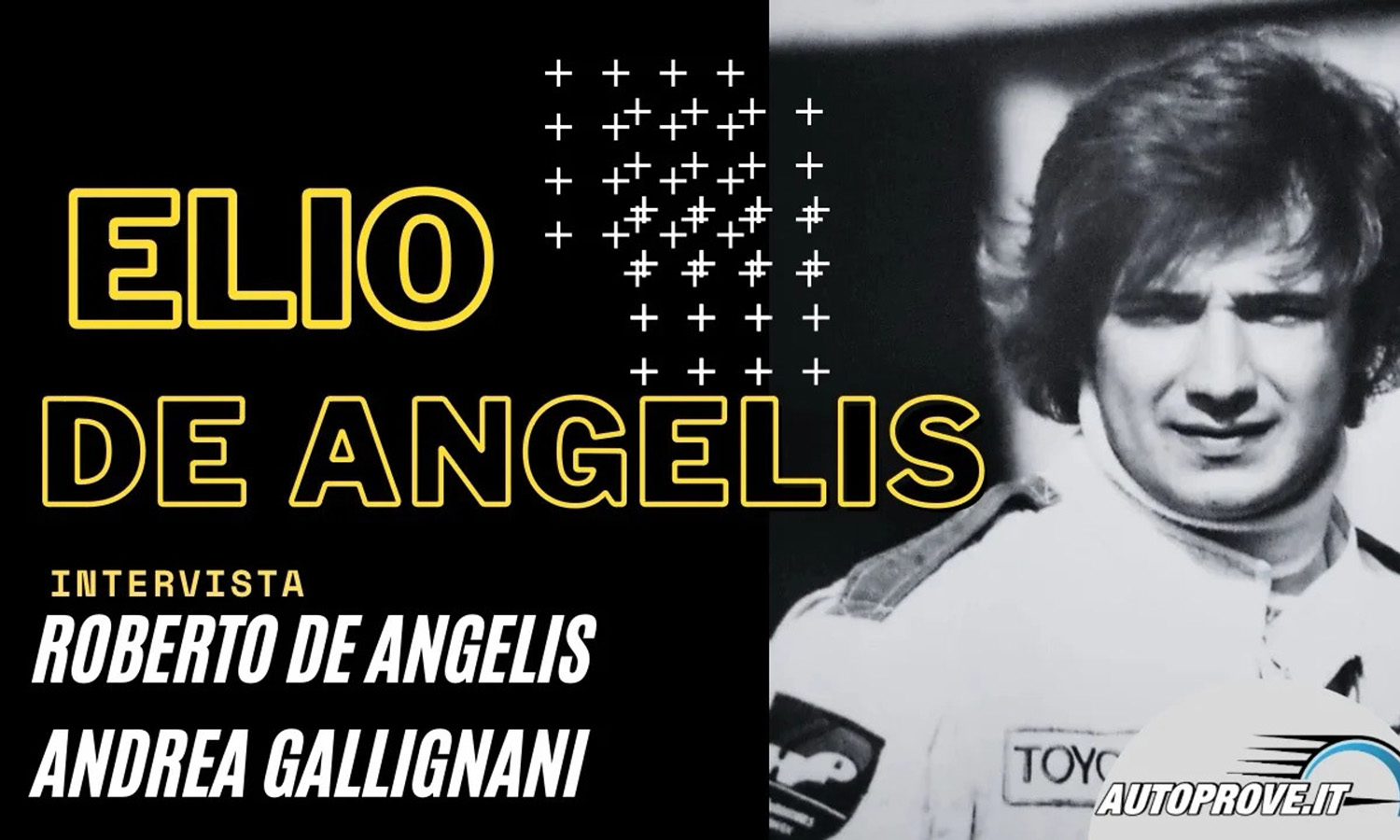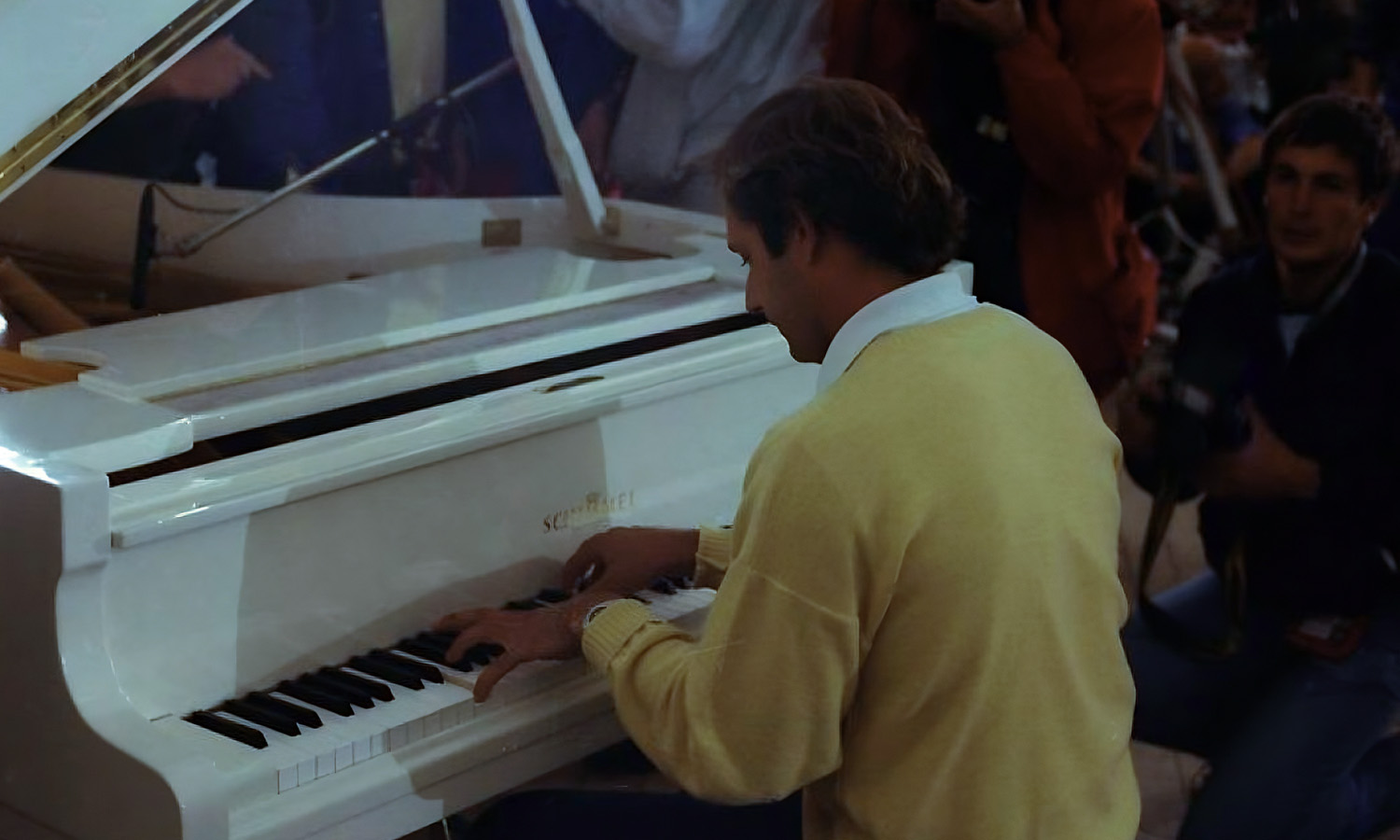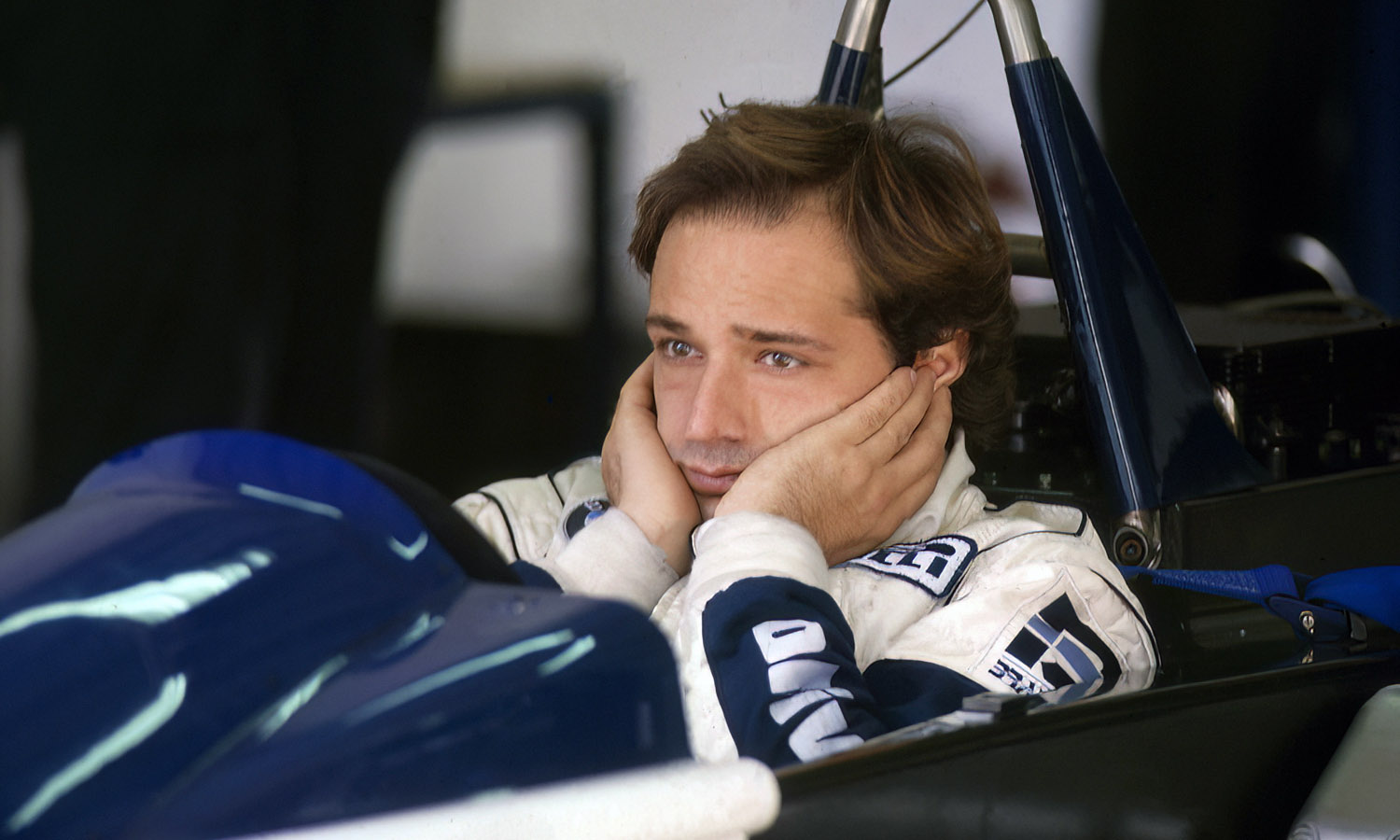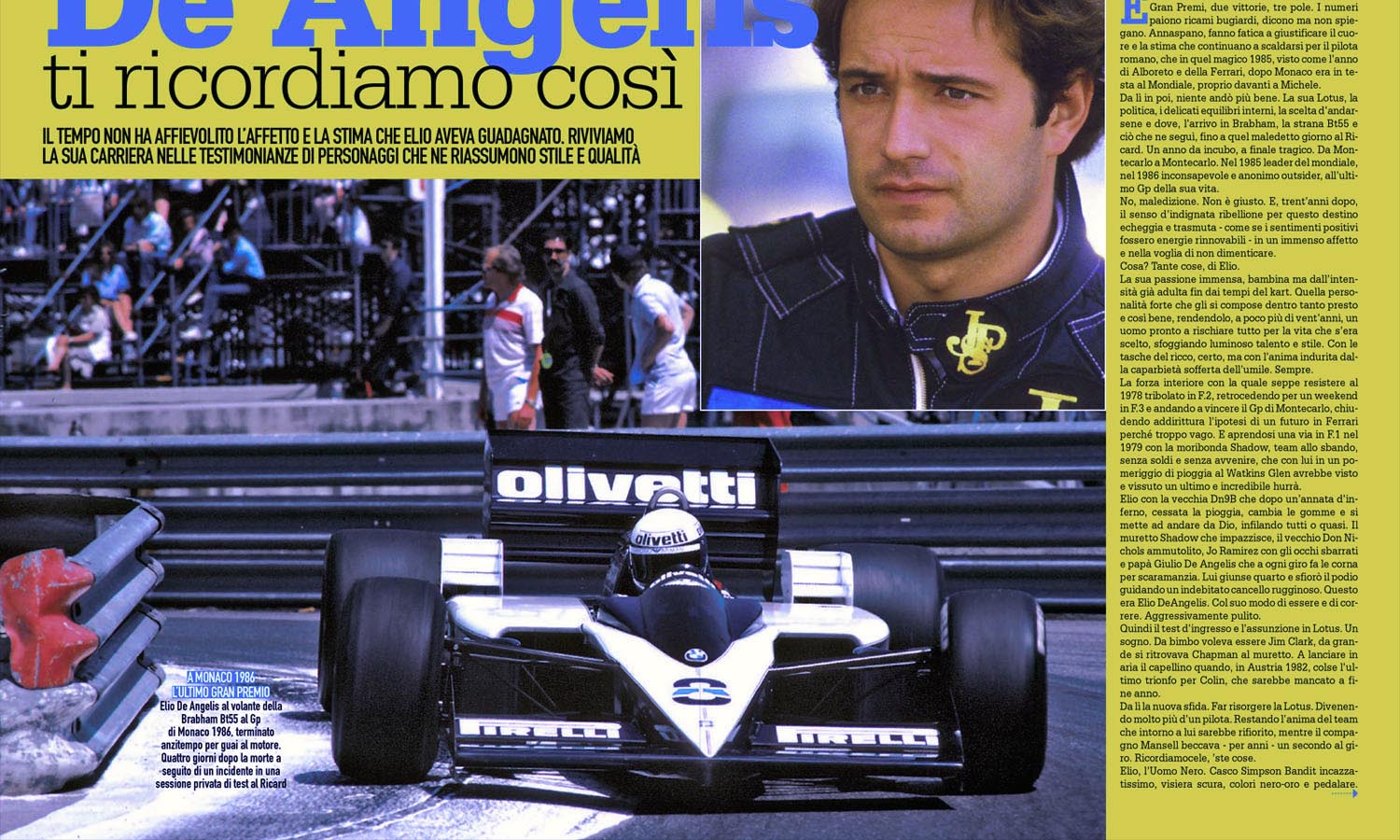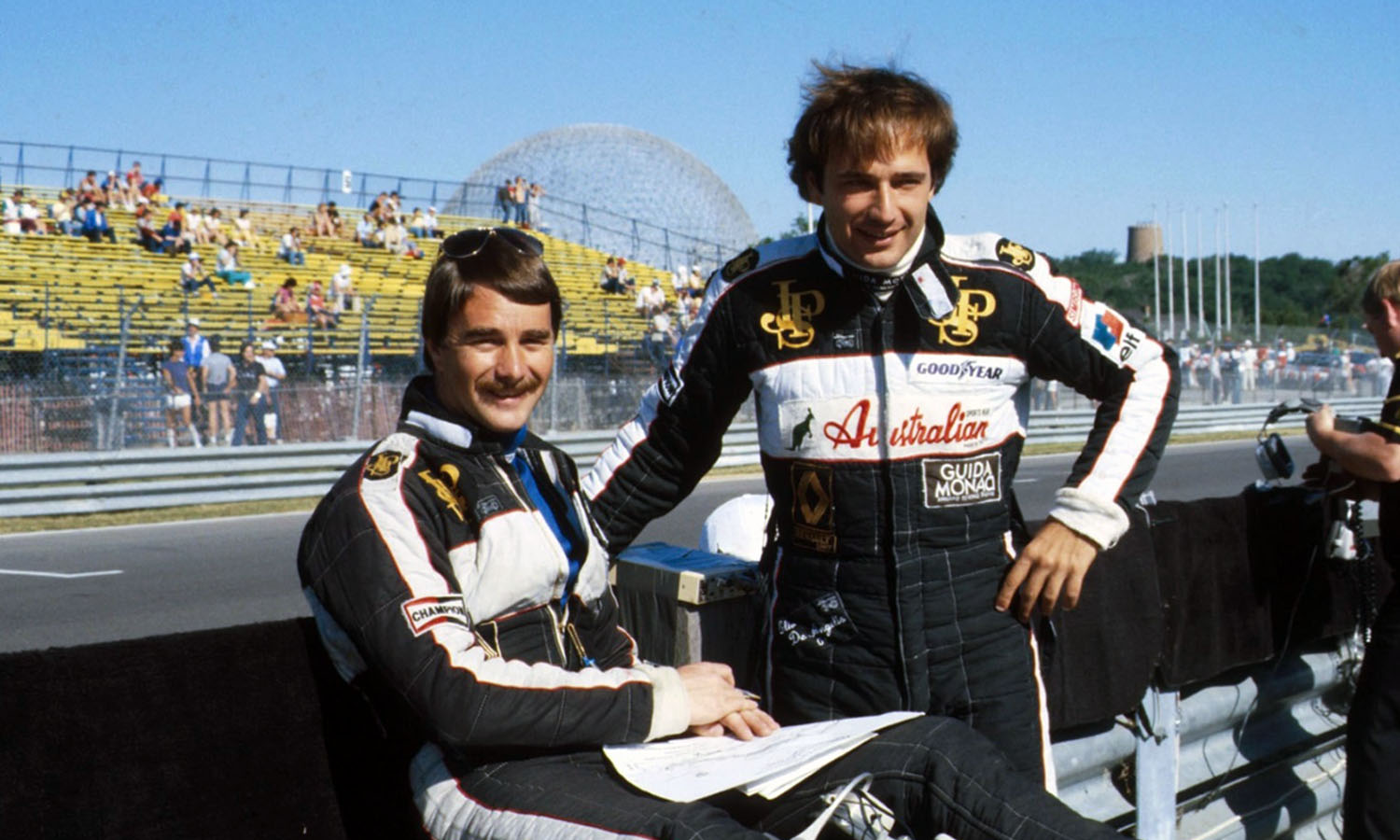♪ He drove racing cars with the same natural fluidity, feel and precision as he played classical music on the piano... ♪

- Full name: Elio de Angelis
- Date of Birth: 26 march, 1958 in Rome (Italy)
- Date of Death: 15 May, 1986 in Marseilles (France)
- Age: 28 years old
- Hobbies: Piano, Soccer, Skiing
- Sports: Jogging, Tennis, Soccer
- Favorite music: Pop, Country, Blues
- Favorite movies: Science-Fiction, Comedies
- Cigarettes? Elio used to smoke
- Favorite places for holidays: Seaside
- Favorite color: Green
- Believed in God? Yes
- Superstitious? No

“For once, he didn’t appear quite so well-groomed, quite so sophisticated, and he had distinct problems negotiating the lingual chicanes. He spread himself across a corner of the motorhome, his race suit half open and declared a little belatedly “tonight I think I get a little drunk”. Except that he didn’t say “drunk”.
This was Elio de Angelis’ way of enjoying victory, the second of his Formula One career, at Imola. It was alas, to be his final victory and we were to enjoy his driving and his company for just one more year. He died, after a terrible crash in testing, at the Paul Ricard circuit in May 1986.
Perhaps if he had won more of his 108 races some of the uninhibited fun might have evaporated from his hour of triumph. I like to think not. Elio had a insatiable appetite for the good things in life and nothing exceeded his delight in success. It can be claimed – with a degree of justification – that he didn’t chase that success as forcefully as some. If the machinery met his requirements he would push himself to the limit, if it didn’t he would not attempt to defy logic or the odds.
Consider that and you have the retched irony of his death.
But there were always those who underestimated de Angelis, those who were reluctant to acknowledge his quality. His arrival in F1 as another rich kid was not calculated to smooth his path. Suspicion and envy find fertile ground in this game.
I believe he was, at critical points in his career, a victim of circumstances and misfortune. When he joined Lotus the great team was in decline anyway, but his anxiety was compounded by the emergence of Nigel Mansell as a declared challenger to his number one status and the death of Chapman.
The renaissance of Lotus gave him fresh optimism and eventually Mansell departed to make way for Ayrton Senna. That was, however, the beginning of the end of his association with the Norfolk camp. By the time of that 1985 San Marino Grand Prix win, Senna had spelled out his own ambitions and the Latin cocktail proved an impossible mix. Although de Angelis led Senna for much of the Championship he was soon informed that the young Brazilian would be team leader for ’86. “I don’t think it is fair, but what can I do?” Elio would ask. There was, of course, only one answer and he left Lotus after six years with the team.
Again, he was to sign for a team with a glorious past, but an uncertain future. Brabham were on the downward curve and a new car faced inevitable testing problems. He had four races with Brabham, all without scoring, before his fatal accident.
Yet, above the ill-luck and political in-fighting rose a rare man, a rare driver, and the legacy of his is one we should cherish. Modern sport has a way of draining the colour and substance from its exponents. De Angelis’ resistance to such a threat proved a marvellous exception. The driving reflected the man, it had style, charm; it was easy, natural; it was unhurried, uncomplicated.
He was a multi-talented man. During the South African drivers’ sit in of 1982, Elio helped buy morale with a splendid performance of classical music on the piano. “Some day, when I finish racing, I will settle down, have a family and play my piano”.
De Angelis was a roman, a fiercely proud Roman of wealthy stock. He had the looks of a young Brando and the charisma, too. The debonair Elio didn’t, however, take kindly to anyone ramming the silver spoon down his throat. “That makes me angry”, he would say.
When Elio was angry the glossy image cracked. He would remonstrate, gesticulate in true Italian tradition. But mostly we saw another Elio: a warm wholesome, intelligent, perceptive human, with a glint in his eye and a devastating smile. He would engage you in frank, fascinating conversation on a range of fascinating subjects then have you reeling in laughter at his jokes. Even in English, he was the most captivating of raconteurs.
He was a multi-talented man.

The last known picture of Elio de Angelis, taken about an hour before the accident
During the South African drivers’ sit in of 1982, Elio helped buy morale with a splendid performance of classical music on the piano. “Some day, when I finish racing, I will settle down, have a family and play my piano”.
He was a versatile sportsman. He loved skiing and tennis, and, as a player or spectator, had a ferocious passion for football. But more than anything, he craved speed, an obsession he inherited from his powerboat racing father Giulio.

Elio, the eldest of four children, raced with his father and had a few ‘character-building’ mishaps along the way. He decided to seek fame on dry land. He began racing karts at the age of 14 and was European champion at 18. He moved on to cars and swiftly advanced through F3 and F2. He had his baptism of fire with the Shadow team in 1979 and impressed sufficiently to earn his chance with Lotus the following season, as partner to Mario Andretti.
His first Grand Prix success, at the Osterreichring in 1982, was one of the most thrilling in the history of the World Championship. He managed to fend off Keke Rosberg’s Williams and take the decision by inches. Amid the chaos and confusion and celebration that followed, he virtually ran down Chapman. The party spilled into the night and into Italy, but victories were not to flow as readily as the champagne.
Instead, de Angelis was to develop a reputation as a consistent finisher and points scorer. He came third, behind the irresistible McLarens, in the 1984 championship and, when he achieved his second win the following spring, glimpsed the prospect of the title itself.
“Then we will have a REAL party”, he promised.
It was never to be. Elio died in a Marseille hospital on 15 May 1986 aged 28. His car had cartwheeled over a barrier, landed upside down and burst into flames. Approximately 8 minutes elapsed before he was released and then there was a lengthy wait for a helicopter.
His death weighed heavily on the sport’s conscience. There were sudden pledges of improved safety standards for testing, of a reduction in power, of modifications to the Ricard circuit.
I for one though, will remember Elio for much more than the tragic circumstances in which he died. You see, he really did give us so much to savour and to celebrate, after all.”
By Derek Allsopp • Originally published in the 1986-87 Autocourse F1 Yearbook
Awards won by Elio

🏆 1977 • Casco di Bronzo Tricolore
🏆 1978 • Casco d’Oro Tricolore
🏆 1980 • Premio «La Torretta»
🏆 1984 • Trofeo Riccardo Paletti
🏆 1984 • Premio Confartigianato Motor
🏆 1984 • Casco di Bronzo F1
🏆 1984 • Premio Chevron Sportsman dell’anno
🏆 1985 • Premio Achille Varzi
🏆 1985 • Trofeo Riccardo Paletti
🏆 1986 • Premio Villeneuve

